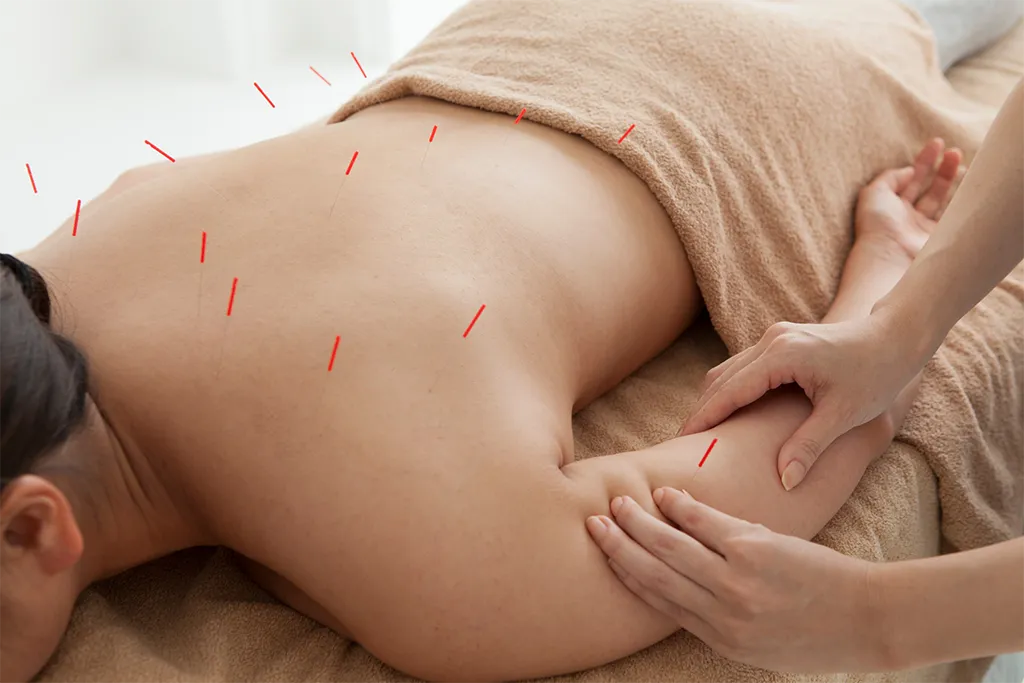Acupuncture is a form of alternative treatment solution, which has gained traction, in recent years. It is deemed an ideal therapeutic solution for varying medical concerns.
Even though it has been subjected to many boring debates pertaining to its efficacy, research across the board has suggested and depicted that it is quite effective in remedying various conditions.
It has therefore aptly demonstrated immense potential after several studies. This article shall highlight and discuss different types of treatments where acupuncture has been proven quite effective.

Acupuncture treatment can help
Chronic Pain Management
Acupuncture has been famed for relieving pain emanating from conditions such as lower back pain where research has illustrated that it is quite effective in significantly reducing lower back pain in afflicted patients whilst also enhancing their functioning and mobility. Patients with osteoarthritis specifically knee osteoarthritis have been on record citing that they felt a lot of improvement after trying acupuncture as the pain was massively alleviated. Further, for people suffering from recurrent and never-ending tension headaches and migraines, acupuncture has proven to be a good solution by lessening their frequency and intensity. Many experts have posited that this pain-relieving effects hail from nerve, tissue and muscle stimulation culminating in the production of endorphins and neurochemicals, which affect how pain is perceived by the patients.
Musculoskeletal Disorders
Acupuncture helps in pain relief in patients with these disorders. It also has anti-inflammatory effects, which are vital in the reduction of swelling and enhanced joint function, especially in those suffering from rheumatoid arthritis and bursitis. Acupuncture lowers the levels of cytokines associated with inflammation by regulating the immune response. Further, acupuncture also helps to promote relaxation, which in turn lessens muscle spasms, and this is quite crucial for people suffering from tension headaches and fibromyalgia. Finally, through improved blood flow in all the affected areas, acupuncture helps to supply nutrients and oxygen to such areas thus promoting repairs and better quicker healing. Patients with muscle stiffness and related pain can also be helped by acupuncture as it helps to carry away all the accumulated metabolic waste responsible for such pain.
Nausea
Many cancer patients undergoing chemotherapy usually suffer from nausea and vomiting. This can also be manifest in others in active post-operative recovery and in pregnant women who constantly have to endure morning sickness. Whilst medical professionals normally treat them, acupuncture also steps in to complement the mainstream medical treatment, and it is very pivotal in reducing nausea and vomiting including all the accompanying symptoms. This can be attributed to the fact that acupuncture modulates neurotransmitters and hormones associated with distinct pathways. This eventually helps to alleviate the symptoms of nausea and vomiting amongst all the aforementioned patients.
Mental Health
Acupuncture has been investigated as a viable solution for people suffering from mental health challenges. It regulates the stress response mechanism in the body hence reducing anxiety and its symptoms. Further, by affecting the neurotransmitter levels, acupuncture helps to boost the mood amongst depressed patients hence ultimately having a huge impact on their overall wellbeing. Acupuncture has also been explored as a good remedy for those suffering from insomnia as it promotes restfulness and relaxation. It focuses on the bespoke points, which are responsible for sleep regulation thus fixing the patient’s sleep patterns, and this has the compounding effect of improving their quality of sleep.
Digestive Issues
Acupuncture regulates digestive functions hence aiding in people who suffer from certain challenges such as acid reflux and irritable bowel syndrome. It is also said to be beneficial to those suffering from gastritis as it lessens inflammation hence relieving symptoms such as gastrointestinal pain and bloating.
Respiratory Conditions
Acupuncture has been said to be helpful for those suffering from conditions such as asthma and allergic rhinitis. This is because it reduces inflammation hence consequently enhancing the overall respiratory function.
Hypertension
Acupuncture is important in lowering blood pressure as it has a massive impact on one’s cardiovascular health. By lessening stress and promoting relaxation, it aids in remedying high blood pressure. More so, acupuncture helps to improve blood circulation hence lessening resistance in the blood vessels. This ultimately helps to maintain correct blood pressure levels.
Acupuncture is therefore a very effective remedy and form of treatment for all the aforementioned conditions. However, it should not be employed as an entire replacement for mainstream and conventional medical practices but used in a complementary fashion. Its efficacy may also vary from one person to another hence necessitating consultation with a medical professional and an acupuncturist to determine the most fitting treatment solution for your condition.

